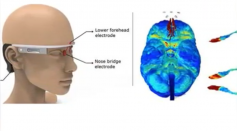Alzheimer's Disease

Personality Traits Linked to Alzheimer's Disease: Which of the Big Five Predicts Higher Risk of Developing Dementia?

Alzheimer's Disease Can Be Prevented? Preclinical Study Claims Natural Compound in Basil May be the Answer

Alzheimer’s Disease Can Be Detected Early; New Technology Developed Shows 99-Percent Accuracy Rate

Aduhelm Alzheimer's Drug Gains FDA Approval; The First in Almost 20 Years

Alzheimer Treatment Breakthrough: Blood Oxygen Levels’ Link to Memory Loss Helps Study to Prevent Syndrome
Women’s Brains Hold Clues as to Why Females Are More Vulnerable to Anxiety Disorder, Alzheimer’s Disease
Scientists Report That There Are Four Types of Alzheimer's, What Are They?

Donanemab, Eli Lily's Revolutionary Alzhemier's Therapy

Study Shows Alzheimer’s Could Be Predicted Through Writing Tests

Scientists Invented a Wearable Device That Can Prevent Alzheimer's Disease

Body Clock Strongly Associated With High Risk of Alzheimer’s Disease

Living in a Noisy Neighborhood May Cause Alzheimer's, Study Shows

Researchers Link Fructose Metabolism With Alzheimer's Disease
Neurologists Are Treating Alzheimer's Disease by Sending Electrical Currents Deep in the Brain
Most Popular

How Technology Is Changing the Real Estate Industry?

Study Reveals High Turnover in Scientific Research Careers: What This Means for Future Scientists

Nikolay Karpenko Biography, Photo, Career, Accomplishments

China’s Tiangong Space Station to Expand Its Capabilities With New Modules






